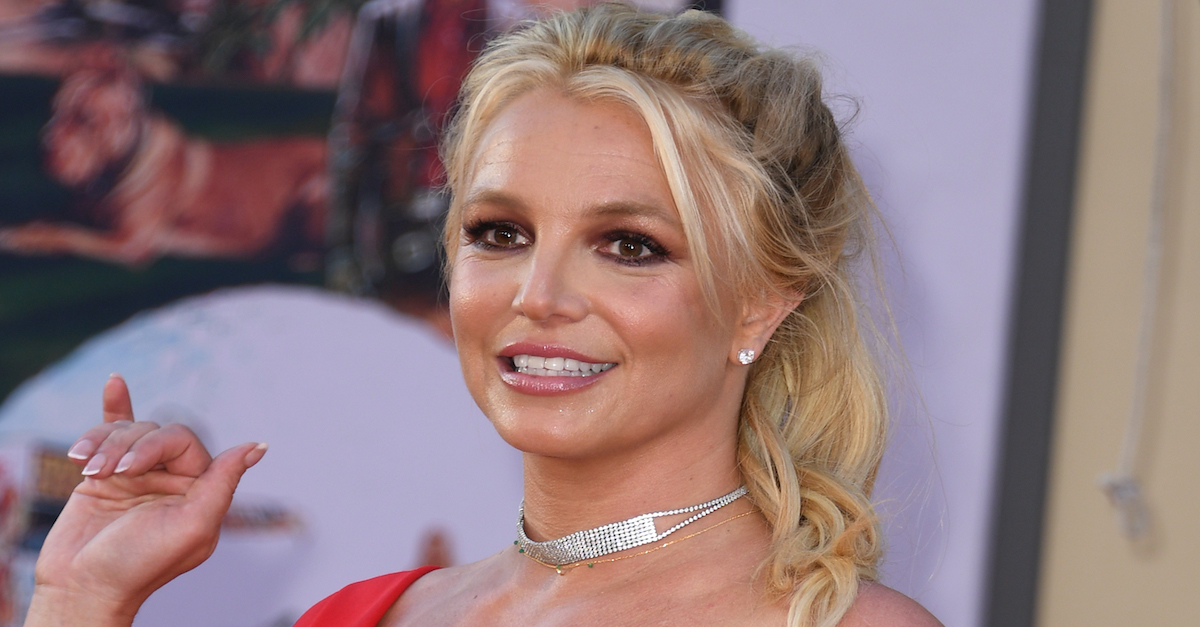
The American Civil Liberties Union (ACLU) has made the unusual move of asking to file an amicus brief in Britney Spears’ ongoing conservatorship case, arguing that Spears should be allowed to choose her own attorney, and that to not allow her to do so would violate her constitutional rights.
The request to Judge Brenda Perry, filed Monday, named more than two dozen advocacy organizations, including the ACLU Foundation Disability Rights Program, the Disability Rights Legal Center, and Mental Health Advocacy Services, as potential signatories to the request.
“Proposed amici have an interest in ensuring that every person in a conservatorship, or at risk of a conservatorship, enjoys full, meaningful due process rights, in light of the significant liberty and autonomy interests at stake in these proceedings, and the long duration of the loss of rights that often occurs in conservatorships,” the ACLU’s request said.
“Proposed amici believe that these due process rights include effective assistance of counsel throughout the conservatorship process, including the right to an attorney who zealously represents their interests, and the right to select and retain the attorney of their choice,” the brief continued. “Proposed amici further have an interest in ensuring that people with disabilities, people perceived to have disabilities, and people with a record of disabilities, can use voluntary supports to make their own, informed choices.”
The filing described the ACLU and other organizations as “proponents for supported decision-making as a tool to help people with disabilities retain and exercise their rights and make their own decisions.”
As described in the filing, “supported decision-making” is a “well-recognized system that allows a person to work with trusted, neutral advisors to consider, make, and communicate their own decision.”
The filing itself is an unusual move, according to probate attorney Roee Kaufman of the Keystone Law Group in Los Angeles, which is not involved in the case.
“It’s totally out of the ordinary,” Kaufman told Law&Crime. “I’ve never seen it done—not to say it hasn’t been done before, but this is not normal.”
The ACLU noted in a footnote that the state’s rules “do not specify a procedure for amicus curiae submissions in Superior Court,” so the ACLU has “attempted to follow the procedure set forth in the rules governing appellate litigation.”
The ACLU said in the filing that the advocacy organizations want to get involved with the Spears case because it is “an important instance of a situation that is common but rarely visible to the public.”
Spears made an IUD allegation and many others, including comparing her conservatorship to sex trafficking and being forced to take lithium against her will, in a June 23 hearing. In a statement issued days after Spears’ testimony, the ACLU linked the allegations to issues including reproductive rights, eugenics, and the rights of disabled people.
“As Spears made her case for the judge, one startling detail stood out amidst the laundry list of abuses,” the ACLU said. “Although she would like to have children and be married, her conservators refuse to allow her to have her intrauterine device (IUD) removed, she said, ‘because they don’t want me to be able to have children.’”
“Unfortunately, losing your reproductive freedom because you are in a conservatorship is very often legal,” the statement said, explaining that conservatorships take away a person’s right to make their own choices, including about reproduction.
Calling Spears’ conservatorship “part of a long history of people with disabilities—most often people of color—being forcibly sterilized, forced to end pregnancies, or losing the right to raise their own children,” the ACLU asked the court to “restore [Spears’] rights” and allow her to remove her IUD if she wants.
The ACLU also recalled the “eugenics movement” in the U.S., when “numerous states passed laws allowing for the involuntary sterilization of people with disabilities.” Although forced sterilization is no longer the law of the land in most cases, the ACLU says that it still happens in conservatorships.
“[T]he ease with which people with disabilities are placed under the control of a conservator or guardian and stripped of their civil rights and liberties is a deeply concerning, systemic issue, and what Spears has shared publicly fits the pattern of harm and deprivation of autonomy that happens all too often across the country,” the ACLU statement also said.
Jamie Spears, Britney’s father and longtime conservator, has said that he is “simply not involved” in any decisions regarding Britney Spears’ reproductive issues, and has questioned whether her testimony is accurate.
Since the hearing, many of the parties involved in Spears’ conservatorship have looked to make a quick exit: co-conservator Bessemer Trust asked to resign on July 1, and on July 6, Spears’ court-appointed attorney Sam Ingham, along with court-appointed law firm Loeb & Loeb, both filed requests to withdraw from the case.
Ingham faced public scrutiny after the June 23 hearing, when Spears said that her lawyer hadn’t told her that she could request to have the conservatorship ended. Kaufman, however, says that the attorneys on the case, including Ingham, are very experienced.
“The attorneys I’ve seen on the docket are some of the biggest players in probate litigation,” Kaufman told Law&Crime. “It’s a who’s who—these are not random people who don’t have experience in the field. A lot of them are very prominent attorneys.”
On Tuesday, TMZ reported that Los Angeles celebrity attorney Mathew Rosengart has agreed to take over representation for Britney, and will be making a formal request in court on Wednesday.
Read the ACLU’s request, below.
[Image via VALERIE MACON/AFP via Getty Images]